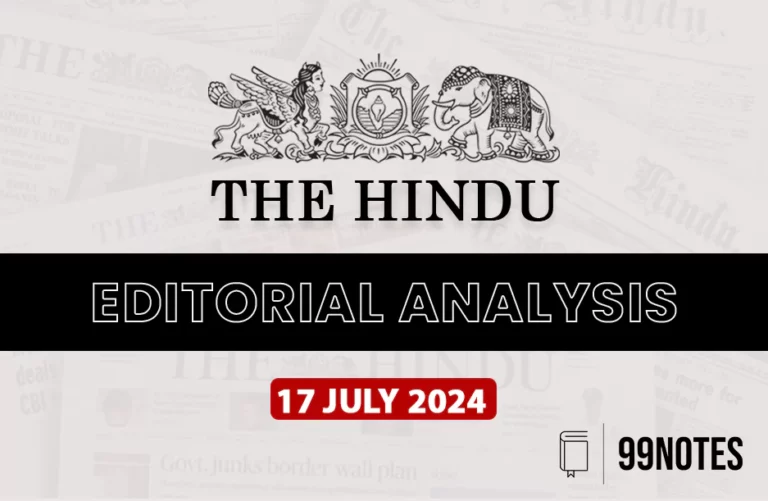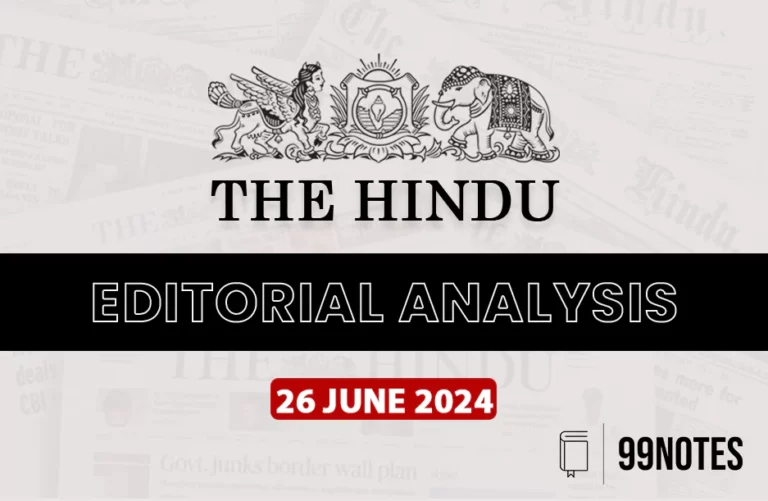7 June 2023 : The Hindu Editorial
The Hindu Editorial
7-June-2023
Daily Current Affairs For UPSC ,The Hindu Editorial Summary
1. The Indian polity, a democratic diagnosis.
Topic: GS2- Indian polity.
Context:
-
-
-
An opinion article in an Indian newspaper expressed concerns about the emerging prospects of India’s governance.
-
It stated that a parliamentary majority is being used to fashion an autocracy, resembling a presidential form of governance.
-
-
Issue:
-
-
-
The replacement of the real president by the prime minister at the inaugural of the new Parliament building was seen as symbolic of this shift.
-
The article discussed the decline in the effective functioning of Parliament as an instrument of scrutiny, accountability, and oversight.
-
Disruptive tactics in opposition and lack of attendance and tardiness towards standing committees were noted.
-
The leadership of the day was criticized for endorsing these practices through silence or lack of participation.
-
The emergence of social media was seen as both complementary and antithetical to the representativeness of Parliament.
-
The article highlighted a design for centralization, personalization, and the creation of an image similar to a ‘Fuehrer or Zaeem.’
-
Administrative devices were used to bring state institutions impacting the electoral process in line.
-
Concerns were raised over the changing character of the Indian polity and its impact on civil servants and the federal balance.
-
Observers abroad have noted the potential impact on India’s experiment with multi-ethnic secular democracy.
-
The article questioned whether the new Parliament building would contribute to a more functional and productive Parliament.
-
Suggestions for enhancing Parliament’s functioning, such as increased working days, Prime Minister’s Question Hour, and more effective committee systems, were not mentioned during the inauguration.
-
-
2. Issues behind violence in Manipur are knotty but truth-telling should help
Topic: GS2- governance.
Context:
-
-
-
The Union government has set up a three-member panel to investigate ethnic violence in Manipur.
-
The panel’s terms of reference include examining the causes and spread of the violence and possible dereliction of duty by authorities.
-
-
Issue:
-
-
-
The inquiry has the potential to initiate a process of truth-telling and reconciliation among the affected ethnic communities.
-
It is crucial to identify and hold accountable the key actors responsible for the violence to build trust in governance.
-
Despite the presence of paramilitary forces and efforts to prevent violence, distrust between the Meiteis and Kukis remains.
-
Political representatives, especially MLAs from both communities, should play a role in promoting peace and reconciliation.
-
Resolving the underlying differences between the communities requires sustained political dialogue.
-
Contentious issues include the demand for Scheduled Tribe status for Meiteis and affirmative action for “hill-tribes.”
-
Land ownership rights and claims of encroachment have also contributed to tensions.
-
Reconciliation can only succeed if these complex issues are addressed through constitutional solutions.
-
The priority is to end violence, facilitate the return of displaced people, ensure their safety, and hold accountable those responsible for violence.
-
The success of the commission’s work will play a crucial role in achieving these objectives.
-
-
3. Seeing India’s energy transition through its States
Topic: GS3- sustainable development.
Context:
-
-
-
India is planning to propose a multiple energy pathways approach at the G20 forum to accommodate diverse contexts and development trajectories of countries.
-
-
Issue:
-
-
-
The diversity of India’s states necessitates multiple pathways for its domestic energy transition.
-
State-level actions are crucial for driving the implementation of national energy targets and bridging the gap between national ambitions and state-level implementation.
-
States play a critical role in the energy transition as spheres of implementation, addressing legacy issues, driving policy innovations, and potentially posing roadblocks to national goals.
-
Engaging with diverse state contexts, capabilities, and priorities is essential for effective energy transition planning and execution.
-
Considerations include aligning state targets with national goals, managing renewable energy-enabled load migration, understanding inter-linkages and implications, and addressing resource requirements.
-
Central mandates, state-level steering committees, and regular meetings between central and state energy ministers highlight the importance of engaging with states.
-
A state-level framework is needed to understand plans, actions, and governance processes for energy transition.
-
Such a framework broadens the discourse, promotes transparency and accountability, and ensures stakeholder participation and public legitimacy.
-
Viewing the energy transition through the lens of state preparedness allows for a greater understanding of state-level diversities and enables evidence-based policy choices for an accelerated energy transition.
-
-
For Enquiry
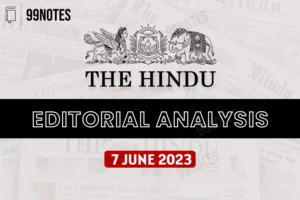
7 June 2023 : The Hindu Editorial

7 June 2023 : Daily Current affairs
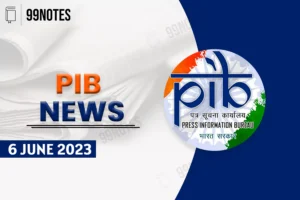
6 June 2023 : PIB

6 June 2023 : Daily Current Affairs
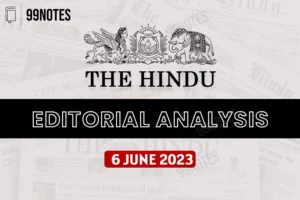
6 June 2023 : The Hindu Editorial
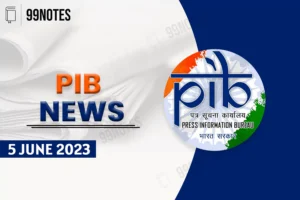
5 June 2023 : PIB
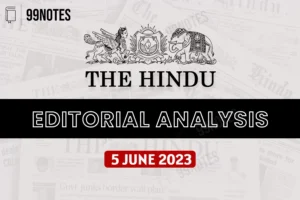
5 June 2023 : The Hindu Editorial

5 June 2023 : Daily Current Affairs
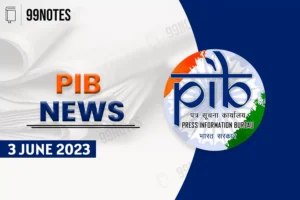
3 June 2023 : PIB
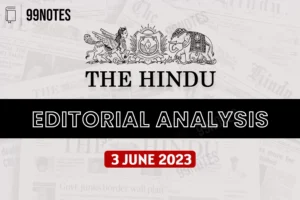
3 June 2023 : The Hindu Editorial
The Hindu 7 June 2023 : The Hindu Editorial The Hindu Editorial
12-May-2023
Daily Current Affairs For UPSC ,The Hindu Editorial Summary
Facebook-f
Twitter
Youtube
1.Marriage…
Daily Current Affairs 7 June 2023 : Daily Current affairs DAILY CURRENT AFFAIRS
7-June-2023
Daily Current Affairs For UPSC ,Daily Current affairs of The hIndu…
PIB 6 June 2023 : PIB PRESS INFORMATION BUREAU
6-june-2023
Daily Current Affairs For UPSC ,The PIB ( Press Information Bureau…
Daily Current Affairs 6 June 2023 : Daily Current Affairs DAILY CURRENT AFFAIRS
6-June-2023
Daily Current Affairs For UPSC ,Daily Current affairs of The hIndu…
The Hindu 6 June 2023 : The Hindu Editorial The Hindu Editorial
6-June-2023
Daily Current Affairs For UPSC ,The Hindu Editorial Summary
Facebook-f
Twitter
Youtube
1….
PIB 5 June 2023 : PIB PRESS INFORMATION BUREAU
5-June-2023
Daily Current Affairs For UPSC ,The PIB ( Press Information Bureau…
The Hindu 5 June 2023 : The Hindu Editorial THE HINDU EDITORIAL
5-June-2023
Daily Current Affairs For UPSC ,The Hindu Editorial Summary
Facebook-f
Twitter
Youtube…
Daily Current Affairs 5 June 2023 : Daily Current Affairs DAILY CURRENT AFFAIRS
5-June-2023
Daily Current Affairs For UPSC ,Daily Current affairs of The hIndu…
PIB 3 June 2023 : PIB PRESS INFORMATION BUREAU
3-June-2023
Daily Current Affairs For UPSC ,The PIB ( Press Information Bureau…
The Hindu 3 June 2023 : The Hindu Editorial The Hindu Editorial
3-June-2023
Daily Current Affairs For UPSC ,The Hindu Editorial Summary
Facebook-f
Twitter
Youtube…


